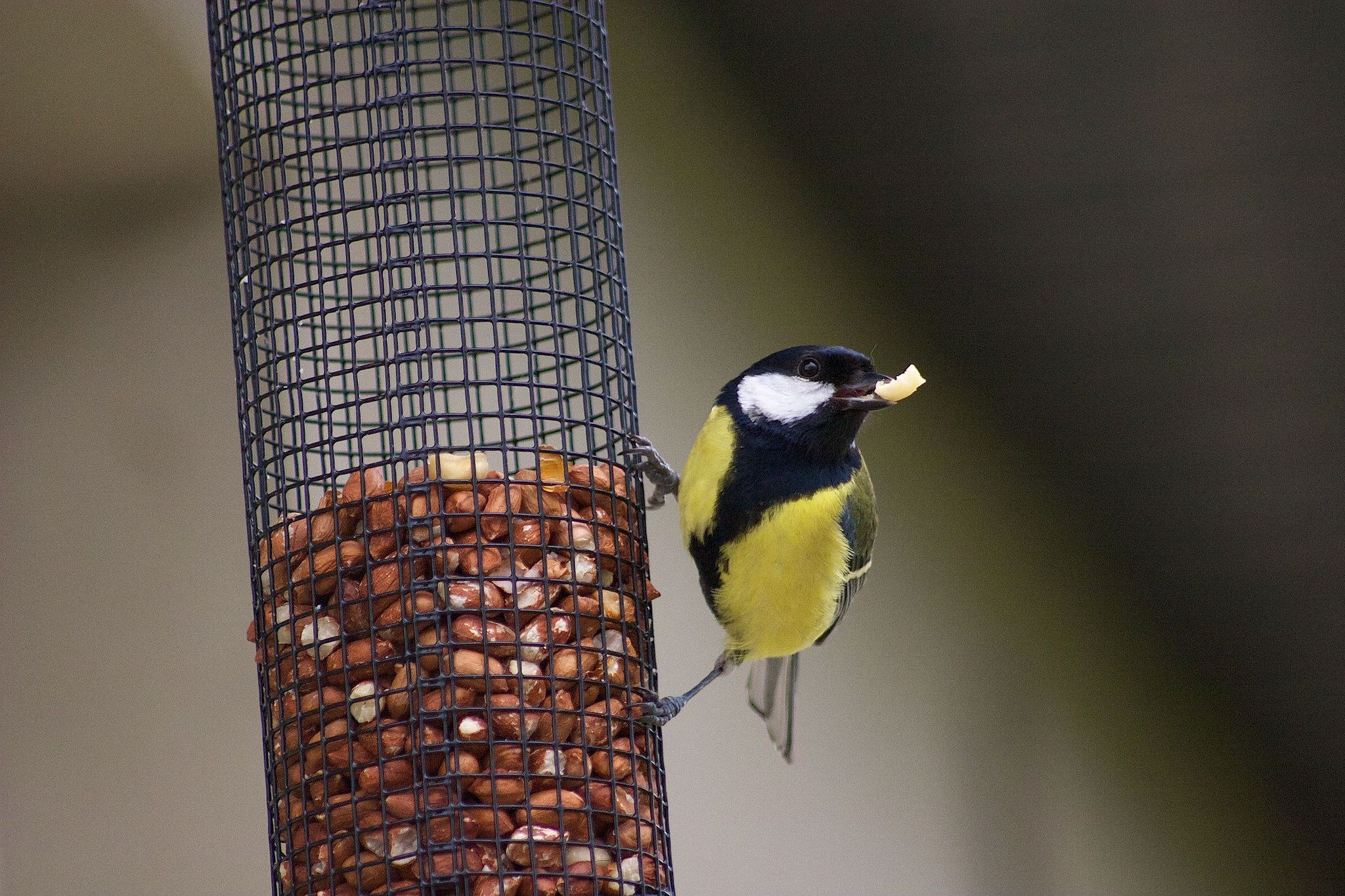
Certain birds in the U.K. have longer beaks than their non-U.K. brethren of the same species. Evolutionary biologists suggest that it's the British people's fondness for setting out bird feeders that is behind this trend. The hobby appears to be directly impacting evolution.
Researchers studied beak lengths of great tits in the U.K., where bird feeders are popular, and in the Netherlands, where they are not. They also tracked the location of tagged tits to determine how much time they spent at bird feeders. The scientists also have 70 years' worth of historical data on great tits and could discern that their beak lengths are changing with time. The study was published today in the journal Science.
The researchers started by analyzing DNA from more than 3,000 great tits in the U.K. and in the Netherlands. They found differences in several genes indicating face shape. The gene variant for faces with longer beaks was correlated with having a higher number of fledgling chicks—so the gene can continue to spread throughout their population.
"DNA is a really useful way of finding out how natural selection occurs in the wild," evolutionary biologist Lewis Spurgin at the University of East Anglia, one of the authors of this study, tells Newsweek. "Our study shows that we can start with DNA and build up a really complete picture of how evolution works."
Spurgin says he doesn't know for sure why birds would need longer beaks in the presence of more bird feeders. "There are several possibilities. It could be that they're simply more able to access the feed, you may be able to get to it better," Spurgin says. "It could have something to do with [their beak being] less damaged by the pecking, but we don't know, that's something that we'd like to do in the future."
Bird feeders gained popularity as a way to help birds survive through harsh winters. Now, their primary function is to attract birds to yards for viewing. It became disproportionately popular in the U.K., and now the U.K. purchases twice as much bird feed annually as the rest of Europe combined.
However, it's hard to say for certain that the presence of bird feeders is causing the lengthened beaks. The change could be due to another difference in the environment that the researchers didn't recognize, or it could be that they are evolving different songs, for instance.
Britain seems to be a paradise for birds. In 2015, the journal Global Change Biology published a similar study on a birds called black caps and found that over a 12-year period, black caps increasingly started wintering in Britain instead of the Caribbean.
As Charles Darwin learned with his finches, bird beaks adapt to their environment. And with so many bird feeders in the U.K., that's the environment that great tits have to adapt to.
Uncommon Knowledge
Newsweek is committed to challenging conventional wisdom and finding connections in the search for common ground.
Newsweek is committed to challenging conventional wisdom and finding connections in the search for common ground.
About the writer
Kristin is a science journalist in New York who has lived in DC, Boston, LA, and the SF Bay Area. ... Read more
To read how Newsweek uses AI as a newsroom tool, Click here.








